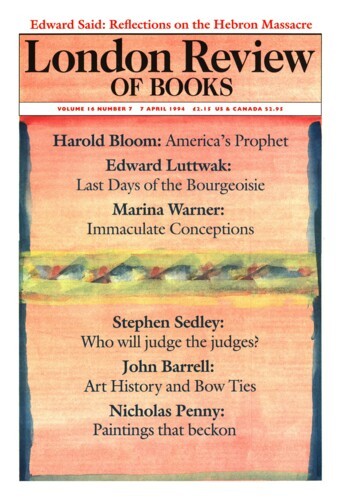In one era and out the other
John North, 7 April 1994
The first great Scaliger problem is that of distinguishing between father and son. When Swift, in his Treatise on Good Manners and Good Breeding, insisted that fiddlers, dancing-masters, heralds and masters of the ceremony were greater pedants ‘than Lipsius, or the elder Scaliger’, there must have been readers who asked themselves whether he wasn’t confusing Julius Caesar Scaliger, one of the 16th century’s most formidable literary scholars, and his son Joseph, who, as it happens, was successor to Lipsius at Leiden. And if their distinctive styles of pedantry make the two of them discernible to connoisseurs of these things, there remains the fact that they are closely linked in many people’s minds by a genealogical obsession of the father’s making. He spent much effort in convincing his son Joseph – and the world – that they were descended from the della Scala family, rulers of Verona, whose nobility they must uphold. The belief, and the need to defend it against a sceptical public, surely helped to form Joseph Scaliger’s irascible nature.’

